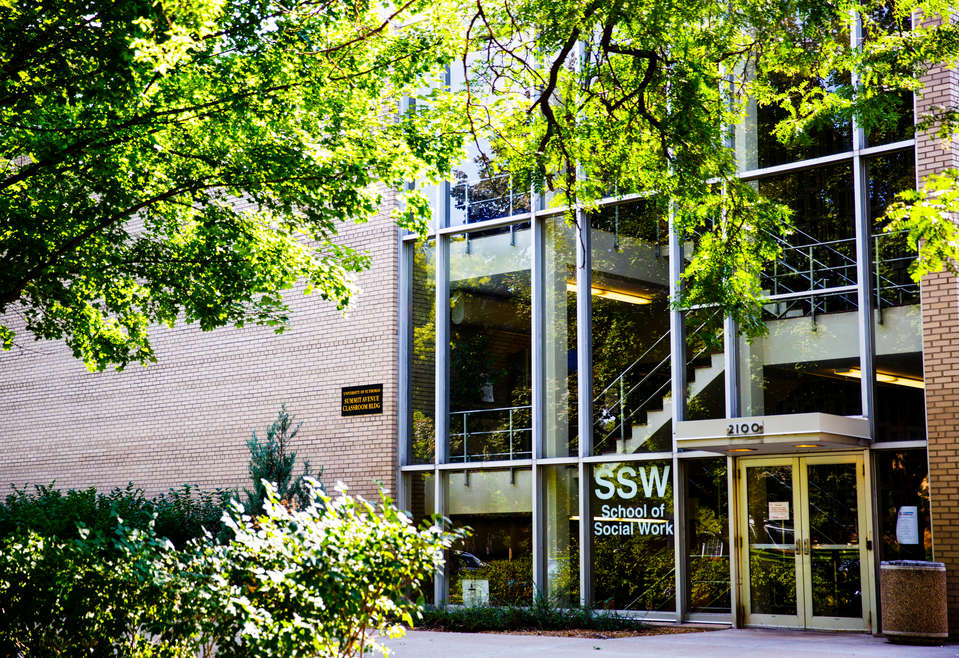The School of Social Work in the Morrison Family College of Health just received its largest federal grant ever: $1.9 million from the U.S. Health and Resources Administration (HRSA). It is also the second-largest federal grant (outside of COVID-19 stimulus funds) ever awarded to the University of St. Thomas.
The grant will enable the School of Social Work to provide $10,000 scholarships over four years to 116 Master of Social Work (MSW) students in clinical field placements, with the ultimate goal of expanding integrated behavioral health services for medically underserved communities.
Every year for four years, 29 MSW students completing their clinical field placements will receive a $10,000 scholarship. The scholarship will help the School of Social Work recruit, train and support underrepresented students to improve the demographic representation of the behavioral health workforce in Minnesota.
Selected students, known as Integrated Behavioral Health Care (IBHC) Clinical Scholars, will participate in the IBHC Training Program and receive specialized training in IBHC, specifically with medically underserved populations.
Understanding integrated behavioral health care
Integrated behavioral health care is an approach to providing care that increases access to care and addresses health needs holistically. Here’s an example of what it looks like in practice:
A man from an immigrant community has lost his job, and his financial concerns cause him to develop severe anxiety. He has preexisting health conditions he worries he cannot pay to treat, and he is not fluent in English, making it difficult for him to find resources he can utilize while he looks for work. He begins using substances to cope with his anxiety, but this exacerbates his preexisting health conditions. Finally, he seeks help from a community-based agency, which assists him in accessing care at an integrated behavioral health care clinic. The clinic addresses his anxiety, his substance use, and his preexisting conditions, while also connecting him to resources to alleviate his financial strain and help him find job opportunities.

School of Social Work Professor Dr. Tonya Horn
“Such services are desperately needed but are not widely available,” said Dr. Tonya Horn, who led the effort to apply for the HRSA grant. “It is especially important that a more diverse workforce provides these integrated behavioral health services, so that unique needs within diverse communities can be properly addressed.”
Enhancing curriculum, training and services
As part of this grant, the School of Social Work will expand the number of clinical field placements offered in IBHC settings and increase the capacity of these clinics to serve medically underserved communities through additional training opportunities and hosting IBHC Clinical Scholars.
Additionally, the grant will enable the school to engage speakers, mentors, and consultants from the fields of nursing and other medical professions, as well as experts in other areas, including substance use, trauma-informed healing, and culturally relevant integrated behavioral health care to enhance student-learning opportunities.
Overall, the grant will help the Morrison Family College of Health enhance its curriculum and training focused on integrated behavioral health while providing more of these services in the community.
“One of our guiding principles in the Morrison Family College of Health is ‘social ingenuity and innovation through interprofessional collaboration and partnerships with the community,’” said Horn. “I can’t think of a better example of how we can live up to that principle.”







